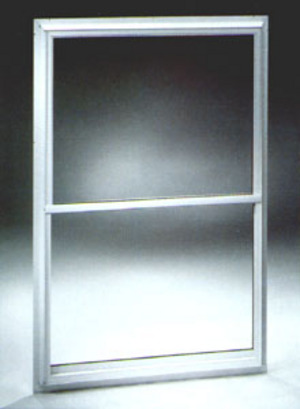Approximately forty to fifty percent of heat lost and gained in a home is through its windows. Windows that are poorly insulated can add more than $500 a year in heating and cooling bills. An unprotected single-paned window will lose almost ten times more heat than the same amount of insulated wall space.
One way to combat this problem is by installing storm windows. Storm windows can increase the efficiency of older, single-pane windows by up to seventy percent because they slow heat movement and reduce air leakage. Furthermore, the airspace between the existing window and storm window adds an additional level of insulation.
While many people consider storm windows a cool climate addition, it can also be beneficial in warmer climates. A study of three homes in Florida showed energy savings as high as thirty percent after the homes installed interior storm windows. The homes also reported a reduction in interior window condensation.
Storm windows are installed either on the interior or on the exterior of the window. Aesthetically, interior storm windows are usually more attractive than their exterior-mounted counterparts are. Interior storm windows are designed to blend in or complement interior designs. They are also usually made with acrylic, which is lighter than glass and is better at resisting impacts. However, acrylic is easily scratched, not fire-rated, and requires special cleaners.
Because interior storm windows clip onto your existing window, they are easier to install and remove. They are also cheaper, because they do not need to be as durable as exterior storm windows, which are exposed to the elements. These holes subtract from the energy savings, but are essential.
Interior storm windows are more airtight because they are made with weather-stripping. Exterior windows cannot use weather-stripping because rain or water vapor might leak behind it and cause problems with moisture. Furthermore, exterior-mounted storm windows require “weep holes” at the bottom of the frame to allow moisture that collects between the main window and the storm window to drain out.
Exterior storm windows are a good economical alternative to replacing old windows. The cost of installing storm windows is about one-forth of the cost of replacing the windows. In addition, they can help protect your windows from being damaged by rain or snow, which can be crucial for older, wooden windows. Because they are permanently installed, they will provide year-round protection.
One advantage to exterior storm windows is that they made with a “triple-track” that holds two glass sashes and one screen. This means that they can be opened, unlike interior storm windows. Although interior storm windows can be used year round, they will have to be removed if you want to open the window.
No matter which type of storm window you pick, make sure they are installed correctly and fit properly. To ensure the best fit, it is important to have accurate measurements for every window in your home. Even though some windows may appear to be the same, it is best to measure each one individually to make sure.
Sources:
http://www.eere.energy.gov/consumer/your_home/windows_doors_skylights/index.cfm/mytopic=13490
http://www.thisoldhouse.com/toh/knowhow/adding/article/1,16417,476717,00.html
